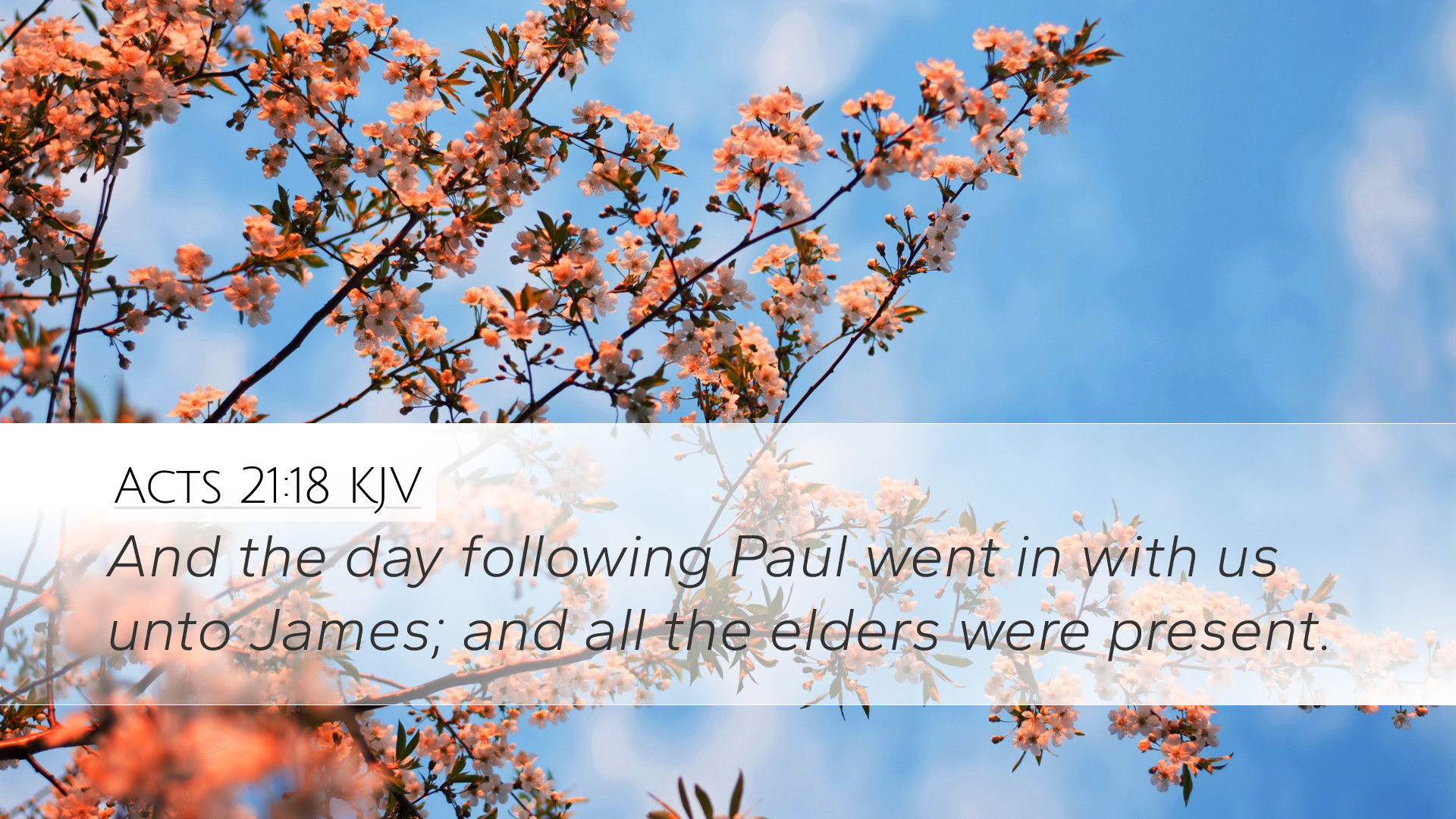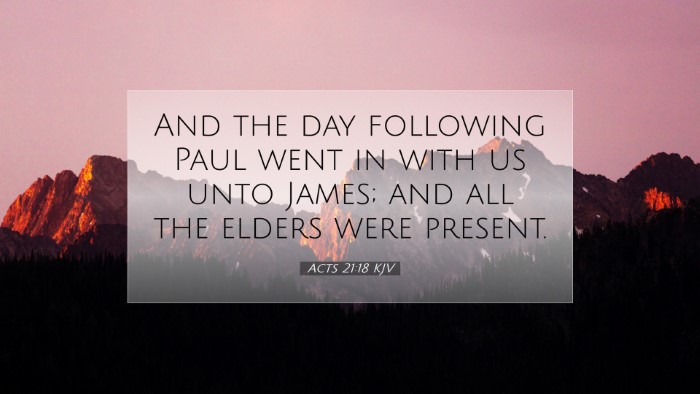Commentary on Acts 21:18
Acts 21:18 states: "And the following day Paul went in with us unto James; and all the elders were present." This verse marks a significant moment in the narrative of the Apostle Paul’s ministry as he journeys towards Jerusalem, where he encounters both opportunities for evangelism as well as potential conflicts arising from his ministry to the Gentiles.
Summary of Context
As we analyze Acts 21:18, it is essential to understand the broader context within which it resides. The preceding chapters sketch the tension surrounding Paul's mission to the Gentiles and the apprehension felt by the Jewish believers regarding his influence. The verse introduces a pivotal moment where Paul, after a difficult journey, meets with key leaders of the Jerusalem church.
Insights from Public Domain Commentaries
Matthew Henry
Matthew Henry highlights the importance of leadership in the early church, emphasizing that James, the half-brother of Jesus, possessed significant authority. Henry notes that Paul’s visit was not merely social; it was integral to maintaining unity within the church amidst growing tensions regarding the inclusion of Gentiles. Furthermore, he underscores the hospitality and recognition of leadership, indicating a profound respect that Paul had for the elders present.
Albert Barnes
Albert Barnes elaborates on the significance of James as the focal point of the Jerusalem assembly. He remarks on the importance of this meeting as a formal recognition of Paul’s ministry among the Gentiles. Barnes discusses how the presence of all the elders emphasizes the communal governance structure of the church, crucial for addressing the challenges posed by differing cultural practices and teachings. He suggests that this meeting aimed to reconcile Paul’s Gentile mission with Jewish customs, creating a framework for understanding Christian unity.
Adam Clarke
Adam Clarke offers a detailed examination of the dynamics of this meeting. He suggests that Paul sought to demonstrate the fruits of his ministry by introducing the elders to the work God had accomplished among the Gentiles. Clarke highlights the significance of the gathering as a moment of transparency and accountability, where testimonies of conversion were shared. He points out that such testimonies served to affirm the validity of Paul’s ministry while reinforcing the distinction between Jewish and Gentile believers.
Theological Implications
- Leadership and Accountability: The engagement between Paul and the Jerusalem leaders showcases the relational aspects of church governance, emphasizing a model of mutual respect and accountability.
- Unity in Diversity: This verse symbolizes the early church's struggle to navigate cultural differences, thereby laying the groundwork for understanding how diverse practices can coexist under the banner of the Gospel.
- The Role of the Holy Spirit: The involvement of the Holy Spirit throughout this chapter serves as a reminder that God's guidance transcends cultural boundaries and challenges believers to remain faithful amidst diversity.
Conclusion
Acts 21:18 presents a critical juncture in the apostolic mission, where Paul’s relationship with the Jerusalem church is put to the test. Engaging with leaders such as James not only helps validate Paul’s ministry but also illustrates the collaborative effort required to maintain the integrity of the church. The insights from Matthew Henry, Albert Barnes, and Adam Clarke deepen our understanding of this interaction and challenge contemporary believers to seek unity amidst diversity, fostering a spirit of cooperation reflective of the early church.


